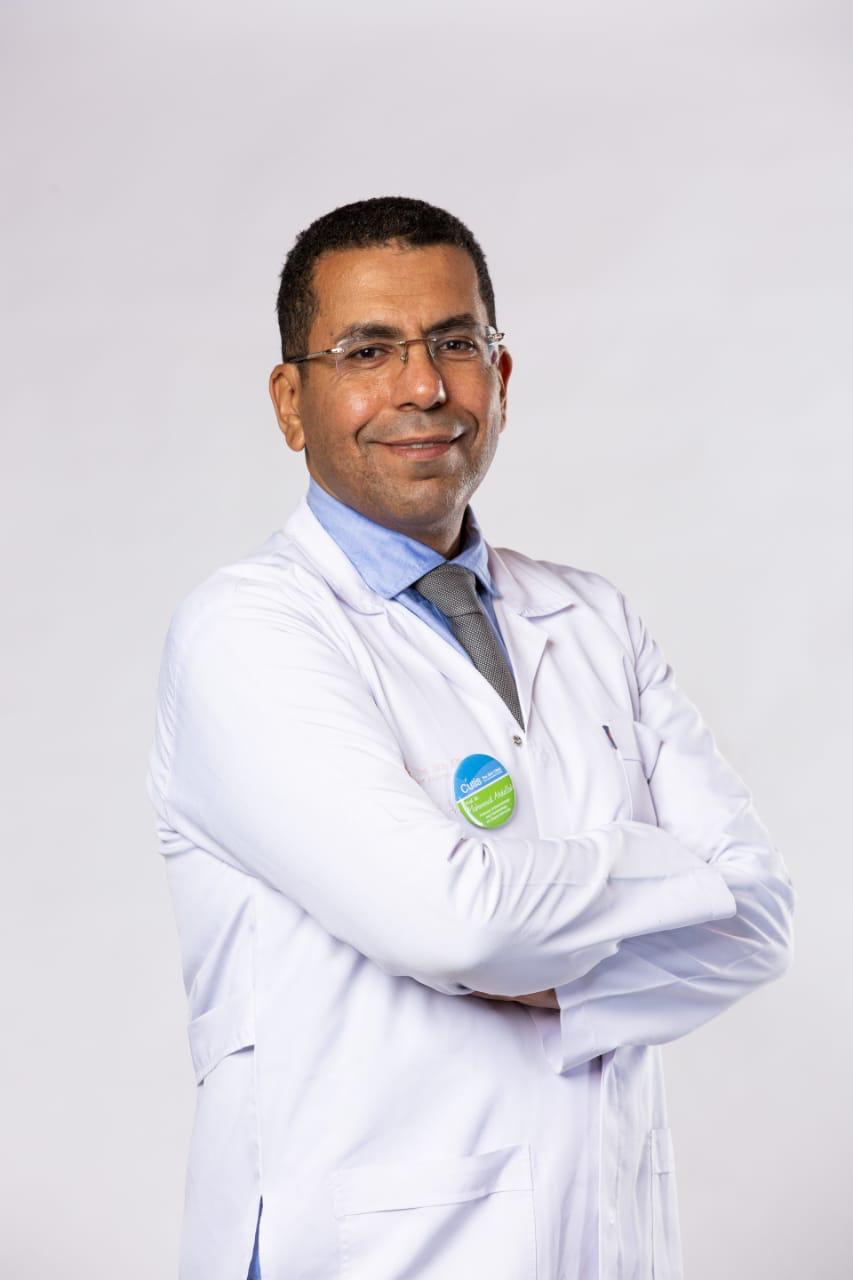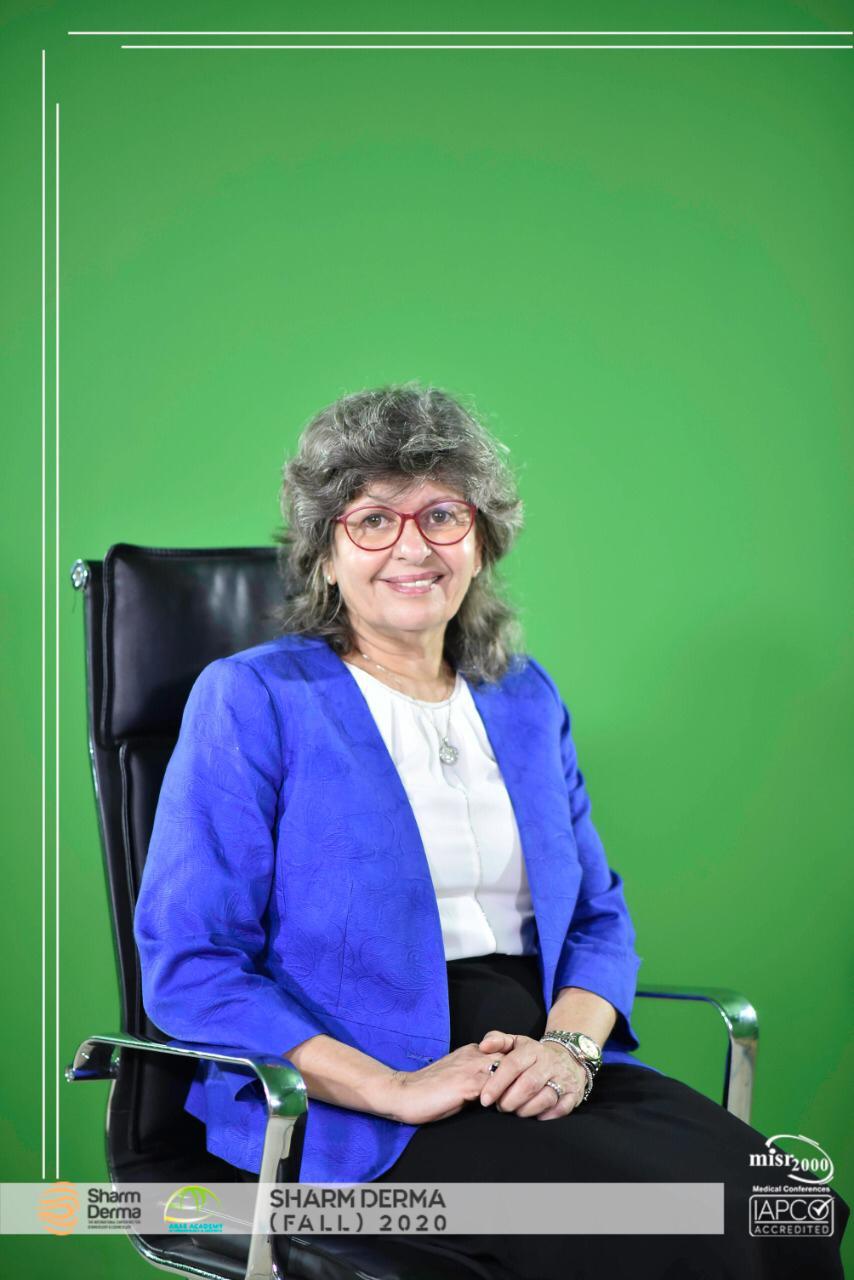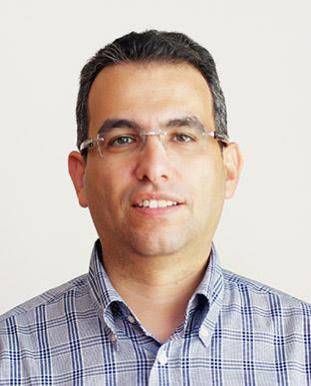On World Psoriasis Day
Experts: Psoriasis is a non-contagious immune-mediated disease that affects more than one million Egyptian patients
Organisers of World Psoriasis Day launched a campaign this year with the theme “Be Informed” to shed light on the repercussions of the lack of information about the disease, which reflects negatively on patients. Perhaps informing society about the fact that psoriasis is non-contagious will reduce the stigma, discrimination and exclusion associated with the disease.
Experts have stressed that psoriasis is an immune-mediated condition that constitutes a heavy physical, social, emotional, and economic burden on the patients who suffer from a raging battle inside their bodies, from which only thick, scaly spots appear on the surface of the skin. Although psoriasis is a chronic disease, there are treatment options that target the immune system and the skin.
To contribute to correcting misconceptions about psoriasis, Janssen Pharmaceutical Company, one of the pharmaceutical companies of Johnson & Johnson and a leading company in immunology, participated in this year’s World Psoriasis Day to raise awareness about the disease, highlighting the continuous suffering of psoriasis patients, and stressing the need to provide them with the best healthcare services.
Dr. Mahmoud Abdallah, professor of dermatology and venereology at Ain Shams University’s Faculty of Medicine, said that until the mid-1980s psoriasis was regarded as a skin disease the cause of which was unknown, but then scientists found that psoriasis was the result of an immune-mediated disorder and that immunosuppressive drugs may significantly improve the condition.
He added that psoriasis affects from 1-3 percent of the population as per the global prevalence rates.. It is believed psoriasis is the result of a disorder in some genes. Dr. Abdallah pointed out that psoriasis is a non- contagious disease, yet it can be passed on to children. If one of the parents has psoriasis there is a 14 per cent chance the children will inherit the disease. The percentage hikes to 41 if both parents have the condition.
Dr. Abdallah stressed that scientific research has revealed that the immune-mediated disorder does not affect the skin only, but may affect the joints and intestines as well. If not treated, psoriasis patients are more likely to develop high blood pressure, diabetes, angina attacks, brain strokes, and fatty livers.

Dr. Mahmoud Abdallah, professor of dermatology and venereology at Ain Shams University’s Faculty of Medicine
Dr. Emadeddin Al-Gamal, professor of dermatology at Al-Azhar University and president of the Egyptian Psoriasis Association, said psoriasis is divided into mild, moderate, and severe cases, indicating that each case has its own customised treatment, such as ointments, pills and injections, to help patients recover quickly from the psychological, social, and physical repercussions of the disease.
He added that psoriasis is a non-contagious immune-mediated disease that may be due to hereditary or genetic reasons. Early diagnosis prevents its associated complications, such as arthritis, that significantly affect patients’ lives.
Dr. Al-Gamal pointed out that a healthy diet reduces psoriasis and improves patients’ response to treatment, stressing that fruit- and vegetable-based diets are the best for psoriasis patients and that obesity and smoking increase the severity of the disease.

Dr. Emadeddin Al-Gamal, professor of dermatology at Al-Azhar University and president of the Egyptian Psoriasis Association
Dr. Mahira Hamdy Al-Sayed, professor of dermatology and venereology at Ain Shams, a member of the International Psoriasis Association, and president of the Egyptian Society of Dermatology and Venereology, explained that psoriasis is a chronic, non-contagious disease according to the 2006 World Health Organisation statement. The number of psoriasis patients is increasing the world over, and especially in some countries. She added that psoriasis patients live in misery, for it is a disease that has no cure, but it can be controlled through continuous treatment. Skin disfigurement is one of the biggest problems psoriasis patients suffer from, but it is not the only challenge.
Psoriasis patients suffer from severe itching, excruciating pain, and arthritis in some cases, which affects their mobility. They also suffer emotionally and physically, which reflects on their families and those around them, Dr. Al-Sayed stated. Psoriasis patients also need special care from everyone, prime among whom is the government. However, the chances for treatment are increasing now, thanks to the new drugs that can completely cure the skin, which is regarded as a miracle for patients with psoriasis. This treatment is expensive, nonetheless, and requires the state’s support since it should be administered for life.

Dr. Mahira Hamdy Al-Sayed, professor of dermatology and venereology at Ain Shams, a member of the International Psoriasis Association, and president of the Egyptian Society of Dermatology and Venereology
Dr. Assem Farag, professor of dermatology at the Faculty of Medicine, Benha University, said early diagnosis and treatment with new drugs are the best line of defence for treating psoriasis patients, and achieving amazing results. He added that psoriasis has a negative effect on the general health of psoriasis patients, including their joints, blood vessels and heart. Obesity plays a major role in the severity of the disease and weight loss reflects positively on the treatment.
He explained that the latest diagnostic method is an advanced telescope to examine skin diseases, pointing out that psoriasis patients can go on about their daily lives, particularly because psoriasis is non-contagious. Moreover, the availability of treatment changed the form of the disease and it has become possible to control it.

Dr. Assem Farag, professor of dermatology at the Faculty of Medicine, Benha University
Dr. Ramez Mohsen, managing director of Janssen in Northeast Africa and Jordan, said that the company is a transformational innovator in immunology in general, and psoriasis in particular. The company believes patients have the right to a normal high-quality life. Towards this end, the company is exerting huge efforts in the field of research and development to ensure the availability of modern treatments that meet the needs of psoriasis patients.

Dr. Ramez Mohsen, managing director of Janssen in Northeast Africa and Jordan
The company is renewing its commitment towards psoriasis patients by participating in World Psoriasis Day to raise awareness about this non-contagious immune-mediated disease with the aim of alleviating the burden on patients, Dr. Mohsen said. Dr. Mohsen also stressed on the right of patients to access modern treatments to be able to act as active members in the society effectively.
Short link: